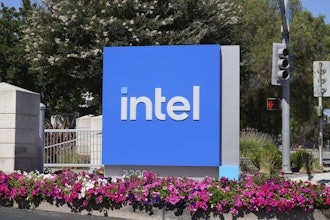
Successful manufacturers remain nimble and adaptive, shifting their strategies in response to technological advances and industry evolution. This nimbleness matters not only with regard to production methods but also marketing methods. Case in point: To ensure ongoing success in the marketplace, more and more manufacturers are adapting account-based marketing, or ABM, an approach that has become increasingly popular across a range of different industries.
What is ABM, exactly? Simply put, this school of marketing focuses on identifying and engaging specific high-value accounts rather than casting a wide net. In this way, it is much more intensely focused than traditional marketing, which aims to attract individual consumers more broadly.
ABM can streamline marketing efforts, enhance customer relationships and drive revenue growth for manufacturers. In this post, we’ll explain some of the basics of account-based marketing.
What are the Benefits of Account-Based Marketing for Manufacturers?
To begin with, let’s dig into some of the main advantages of ABM strategies for manufacturing companies.
Enhanced targeting and personalization
Because ABM strategies entail a much narrower and more focused range of potential clients, marketers can ensure their messaging is more carefully tailored to the client’s needs and pressure points.
Improved alignment between sales and marketing
Working with a smaller list of carefully selected accounts can also help sales and marketing teams coordinate their communications effectively.
Higher ROI and more efficient resource allocation
For manufacturers with more limited marketing resources, investing only in leads most likely to become top-dollar accounts can be incredibly cost-effective.
Strengthened customer relationships and loyalty
Finally, ABM strategies allow manufacturers to devote more attention to ensuring that each client has a frictionless experience, which can generate significant goodwill and ongoing loyalty.
What are the Key Components of ABM Strategies?
For manufacturers looking to execute ABM strategies, there are a few basic mechanics to keep in mind.
Data Collection and Analysis
ABM strategies begin with identifying high-value target accounts, which marketing teams can do using CRM and analytics tools. These teams then focus on gathering data on account needs, behaviors and preferences, all of which can be used to ensure a carefully targeted approach.
Segmentation and Targeting
Another important step is segmenting accounts based on industry, size, potential revenue and buying cycle. This segmentation is essential for spending resources efficiently. Marketing teams may also create detailed account profiles and personas to guide their messaging.
Personalized Content and Messaging
ABM strategies also require developing customized marketing content with relevant messaging tailored to each account. Marketing automation tools can be used to deliver personalized experiences.
Multi-Channel Engagement
Effective ABM strategies typically integrate multiple channels (e.g., email, social media, live events, direct mail, etc.) for comprehensive account engagement. Digital marketing tools may be leveraged for precise targeting and tracking.
Sales and Marketing Alignment
It’s also important to foster collaboration between sales and marketing teams for consistent messaging and follow-ups. This means implementing feedback loops to refine strategies and improve performance.
Measurement and Optimization
Regarding performance improvement, marketing teams should always be diligent in reviewing metrics and analytics. Setting KPIs makes it possible to track the success of ABM campaigns while analyzing performance data can help to optimize strategies and tactics.
What are the Best Practices for Account-Based Marketing for Manufacturers?
Integrating these different components will take time and careful strategy, along with guidance from an experienced marketing team. In the meantime, here are a few best practices for manufacturers looking to implement ABM strategies.
Get Your Segmentation Right
Account segmentation is arguably the most important part of the whole process. We recommend prioritizing the kinds of high-value accounts that can lead to the most meaningful long-term relationships.
Focus on Relationship-Building
ABM strategies are all about nurturing connections. Focus on building genuine relationships with key decision-makers and influencers within target accounts to bring a personal touch to your communications and touchpoints.
Invest in the Right Technology and Tools
We highly recommend building out your tech stack to ensure consistency in your relationship management. Use ABM-specific tools to automate and streamline account targeting, engagement and measurement while integrating with your existing CRM tools.
Create Good Content
ABM strategies can be augmented with some good old-fashioned content marketing. Original assets like blog posts, videos, white papers and e-books allow you to demonstrate subject-matter expertise, which can help earn the trust of your target accounts.
Train Your Team
Finally, ensure that your team is well-versed in ABM principles and tactics, remembering that these strategies can differ a bit from traditional marketing. Also stay in the loop with the latest ABM trends and best practices to keep your strategy effective. A good ABM consultant can help with both of these goals.
Getting Started with B2B Marketing for Manufacturers
Manufacturers need to take advantage of the most advanced and effective marketing approaches to remain competitive. And when it comes to B2B marketing for manufacturers, ABM strategies are all but essential.
As you seek guidance adopting ABM strategies, consider working with the team at Clarity Digital Agency. Our team has a proven track record of manufacturing marketing, helping manufacturers surpass their marketing objectives by implementing data-driven strategies. We’d love to tell you more about moving forward with ABM. Reach out to Clarity Digital whenever you’re ready for a free consultation!






















